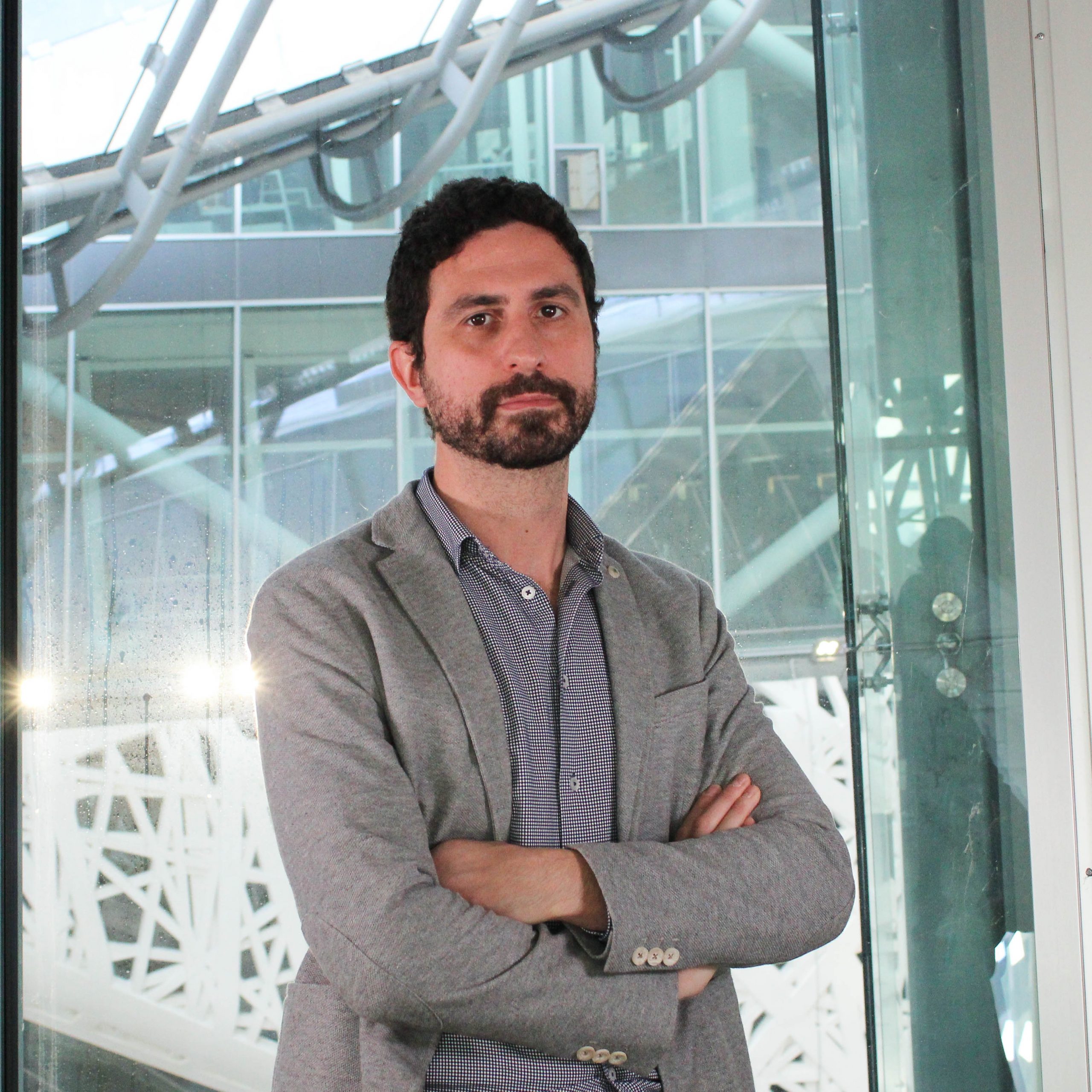
Andrea Sottoriva
- Head of Computational Biology Research Centre, Computational biology
- Research Group Leader, Sottoriva Group
Andrea Sottoriva is the Head of the Computational Biology Research Centre at Human Technopole.
Andrea’s research focusses on the development of new computational approaches to measure cancer evolution in patients, with the aim of predicting the future course of the disease. Andrea’s lab also integrates patient-derived experimental models and multiomics data, with evolutionary methods to design new treatment strategies that aim at preventing and controlling drug resistance.
After graduating in Computer Science at the University of Bologna in 2006, he obtained a master in Computational Sciences from the University of Amsterdam in 2008. During his studies, he worked in neutrino physics at the Department of Physics of the University of Bologna and at the Institute for Nuclear and High Energy Physics (NIKHEF) in the Netherlands as a research assistant.
In 2012 he completed his PhD in Computational Biology from the University of Cambridge, where he worked at the Cancer Research UK research centre.
After postdoctoral work at the University of Southern California, he started his lab at the Institute of Cancer Research in London in 2013, where in 2018 he became the Deputy Director of the Centre for Evolution and Cancer and then the Director in 2020.
He authored several studies published in prestigious scientific journals, including Science, Nature, Nature Genetics and Cancer Discovery. Among his articles are “The co-evolution of the genome and epigenome in colorectal cancer” (Nature, 2022), “Phenotypic plasticity and genetic control in colorectal cancer evolution” (Nature, 2022), “Subclonal reconstruction of tumors by using machine learning and population genetics” (Nature Genetics, 2020), “Detecting repeated cancer evolution from multi-region tumor sequencing data” (Nature Methods, 2018), “Longitudinal liquid biopsy and mathematical modelling of clonal evolution forecast waiting time to treatment failure in a phase II colorectal cancer clinical trial” (Cancer Discovery, 2018), and “Patient-derived organoids model treatment response of metastatic gastrointestinal cancers” (Science, 2018).
In 2016 he was awarded the Cancer Research UK Future Leaders in Cancer Research prize.
Contacts
Follow on
Selected Publications
-
08/2022 - Cell Reports
Quantification of spatial subclonal interactions enhancing the invasive phenotype of pediatric glioma
Diffuse midline gliomas (DMGs) are highly aggressive, incurable childhood brain tumors. They present a clinical challenge due to many factors, including heterogeneity and diffuse infiltration, complicating disease management. Recent studies have described the existence of subclonal populations that may co-operate to drive pro-tumorigenic processes such as cellular invasion. However, a precise quantification of subclonal interactions […]
-
10/2020 - Nature Genetics
Evolutionary dynamics of neoantigens in growing tumors
Cancers accumulate mutations that lead to neoantigens, novel peptides that elicit an immune response, and consequently undergo evolutionary selection. Here we establish how negative selection shapes the clonality of neoantigens in a growing cancer by constructing a mathematical model of neoantigen evolution. The model predicts that, without immune escape, tumor neoantigens are either clonal or […]
-
09/2020 - Nature Genetics
Subclonal reconstruction of tumors by using machine learning and population genetics
Most cancer genomic data are generated from bulk samples composed of mixtures of cancer subpopulations, as well as normal cells. Subclonal reconstruction methods based on machine learning aim to separate those subpopulations in a sample and infer their evolutionary history. However, current approaches are entirely data driven and agnostic to evolutionary theory. We demonstrate that […]
-
04/2020 - Nature Communications
Exploiting evolutionary steering to induce collateral drug sensitivity in cancer
Drug resistance mediated by clonal evolution is arguably the biggest problem in cancer therapy today. However, evolving resistance to one drug may come at a cost of decreased fecundity or increased sensitivity to another drug. These evolutionary trade-offs can be exploited using ‘evolutionary steering’ to control the tumour population and delay resistance. However, recapitulating cancer […]
-
03/2020 - Nature Communications
Mapping the breast cancer metastatic cascade onto ctDNA using genetic and epigenetic clonal tracking
Circulating tumour DNA (ctDNA) allows tracking of the evolution of human cancers at high resolution, overcoming many limitations of tissue biopsies. However, exploiting ctDNA to determine how a patient’s cancer is evolving in order to aid clinical decisions remains difficult. This is because ctDNA is a mix of fragmented alleles, and the contribution of different […]